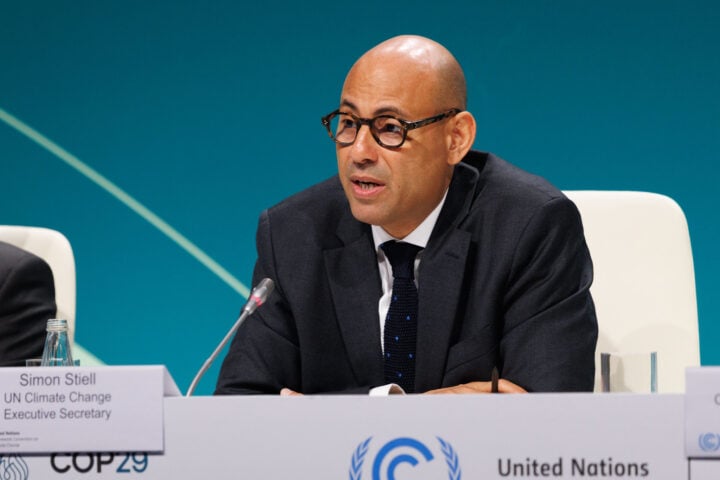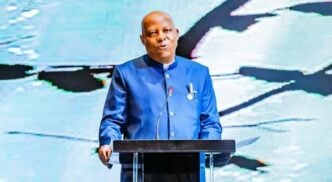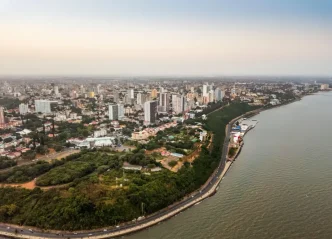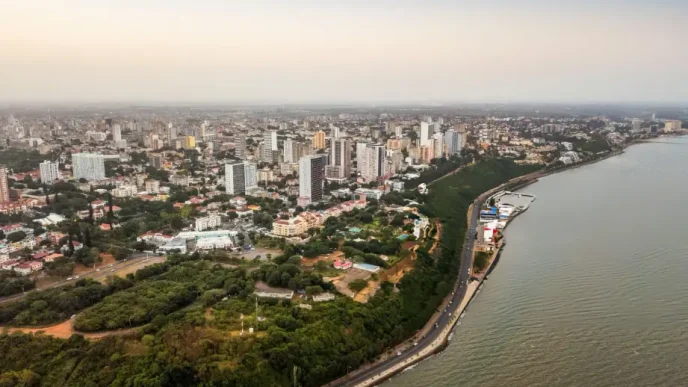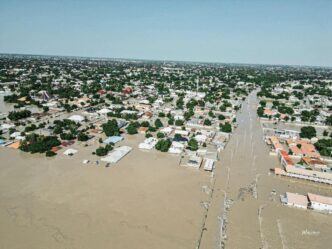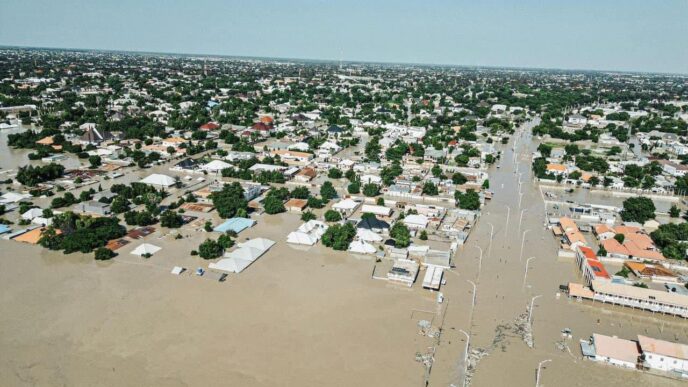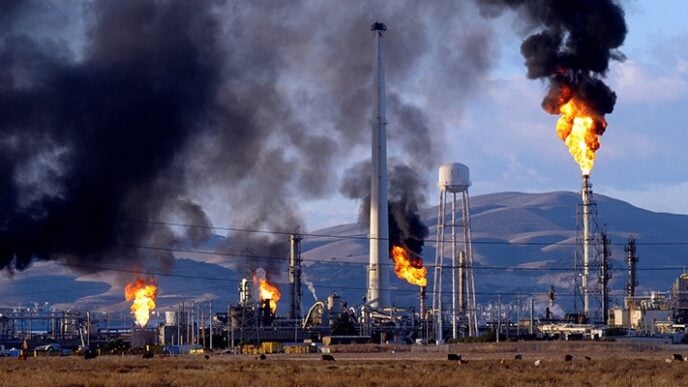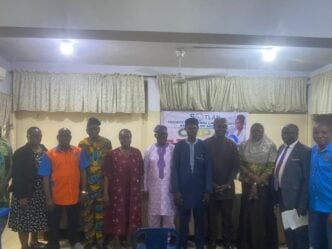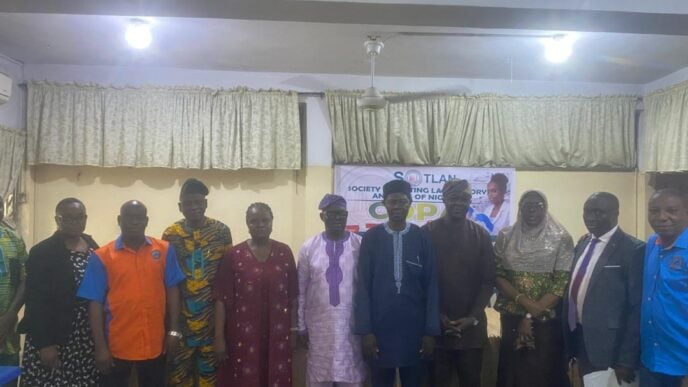Simon Stiell, executive secretary of the United Nations Framework Convention on Climate Change (UNFCCC) | (Photo: UN Climate Change - Kamran Guliyev)
Simon Stiell, executive secretary of the United Nations Framework Convention on Climate Change (UNFCCC), says countries must “go further, faster, and fairer” in the fight to limit global warming.
Stiell spoke on Thursday at the end of the two-week negotiations in Bonn, Germany.
He acknowledged strides made in areas such as the just transition work programme, gender, national adaptation plans (NAPs), and the UAE dialogue on transparency.
He noted that other aspects, including response measures and the technology implementation programme had stalled.
Advertisement
“I’m not going to sugar coat it; we have a lot more to do before we meet again in Belém,” Stiell said.
The UN chief called on leaders and ministers to “roll up their sleeves” and make tough decisions ahead of COP30, as the world remains off track to limit global warming to 1.5°C.
He urged negotiators to continue working between official sessions to bridge divides and find common ground, noting that the climate agenda belongs to all and that “progress here will benefit your people”.
Advertisement
Outside the negotiating rooms, Stiell said, the global energy transition is already underway and presenting “astonishing opportunities”.
He encouraged forward-looking countries to form alliances and lead efforts on breakthrough issues.
As part of the build-up to COP30, the UN will release a new synthesis report in September to assess the ambition of countries’ updated national climate plans (NDCs), alongside another report on transparency (BTR) and progress on adaptation plans.
Stiell called on countries to come up with stronger NDCs by September, adding that they would feed into the new synthesis report that will show how far the world has come.
Advertisement
He also welcomed the approval of the UNFCCC budget, describing it as a “modest but vital investment”.
“All eyes will then be on COP30, to deliver the response to these reports and to see how nations pick up the pace of implementation,” he added.
“This process is humanity’s only means of preventing climate-driven global economic meltdown, with terrible human costs. Just as we have no Planet B, there is no process B.”
GLOBAL SOUTH DEMANDS ACTION OVER RHETORIC
Advertisement
However, the Bonn climate conference ended in a stalemate, with growing frustration from developing countries over the slow pace of negotiations on key issues like adaptation, finance, and just transition.
Reacting to the outcome, Mohamed Adow, director of Power Shift Africa, described the talks as “a sobering reminder that the international community is still dragging its feet, even as lives are being lost to climate breakdown”.
Advertisement
Adow said the lack of progress on finance and adaptation deepened the trust gap between rich and vulnerable nations.
“The attempt to sideline Article 9.1 and reduce climate finance to rebranded aid should alarm us all,” he said.
Advertisement
“This is not just procedural wrangling, it is a retreat from obligations. If the global goal on adaptation (GGA) is to mean anything, it must be backed by finance that is new, predictable, and grant based.”
While Adow acknowledged some momentum under the UAE just transition work programme, he stressed that real progress depends on removing structural barriers like unilateral trade measures.
Advertisement
“As the UN climate boss Simon Stiell rightly said, we need to go further, faster, and fairer. COP30 in Belém must be the moment where justice moves from rhetoric to reality,” he added
Cristina Rumbaitis, senior advisor on adaptation and resilience at the UN Foundation, said the failure to reach agreement on the GGA in Bonn could delay the process by a year or more.
Rumbaitis said countries must find a way to make meaningful progress on the GGA — a critical, yet unfulfilled, pillar of the Paris Agreement.
“It is deeply disappointing that Parties were unable to agree on the indicators and guidance needed to move forward,” she said.
The final days of the talks were marked by intense behind-the-scenes haggling.
While negotiators made some progress reaching an agreement on gender issues and the adaptation fund, talks on just transition and how to measure progress on adaptation revealed deep divisions among countries.
Countries clashed over the direction of the GGA, with the African and Arab groups pushing for alignment with the Paris Agreement and the removal of vague, duplicative language.
There were also tensions over the means of implementation, particularly climate finance, as developing nations rejected proposals that downplayed developed countries’ obligations.
Eventually, a streamlined text on GGA indicator guidance was agreed upon but key questions remain unresolved.
Mitigation discussions also hit a wall as the like-minded developing countries (LMDCs) demanded the removal of all bullet points under the mitigation work programme, while others insisted on referencing scientific reports and NDC synthesis findings.
For many global south delegates, the disappointment runs deeper than the procedural gridlock.
There is a growing sense that the climate negotiations are increasingly disconnected from the lived realities of countries already battling floods, droughts, and climate-induced debt crises.
India, speaking for the LMDC group, had warned at the start of the talks against attempts to dilute the principle of equity under the guise of a “just transition”.
It noted that justice must include clear responsibilities, financing commitments, and protection for affected workers and communities.
Khaled Hashim, coordinator for the G77+China, welcomed progress on the UAE just transition work programme and stressed the need for an enabling international environment.
Hashim also urged Parties to support new institutional proposals by the G77+China aimed at ensuring an equitable global just transition.
“We emphasise the urgent delivery of climate finance, capacity-building, and technology transfer,” he said.
“We encourage all parties to consider these arrangements at SB63 to enhance international cooperation that leaves no one behind.”
Finance remained the elephant in the room throughout the two-week session.
Despite longstanding pledges, developed countries made no firm moves on setting new quantified finance goals.
There was little sign of readiness to shift from symbolic contributions and private-sector-driven models to grant-based, predictable public finance.
As the world prepares for COP30 in Belém, Brazil, expectations are high.
With just months left, the pressure is on wealthy nations to close the finance gap, restore trust, and accelerate delivery on climate commitments.
For many in the global south, COP30 is not just another negotiation; it is a critical test of whether the international community is serious about justice, equity, and survival on a warming planet.
